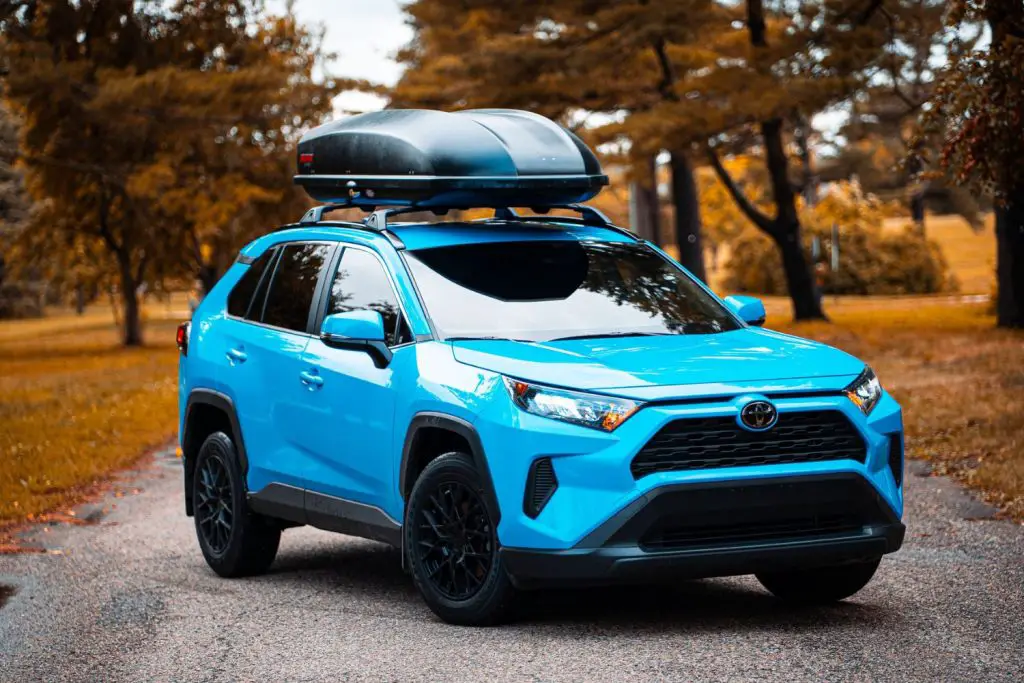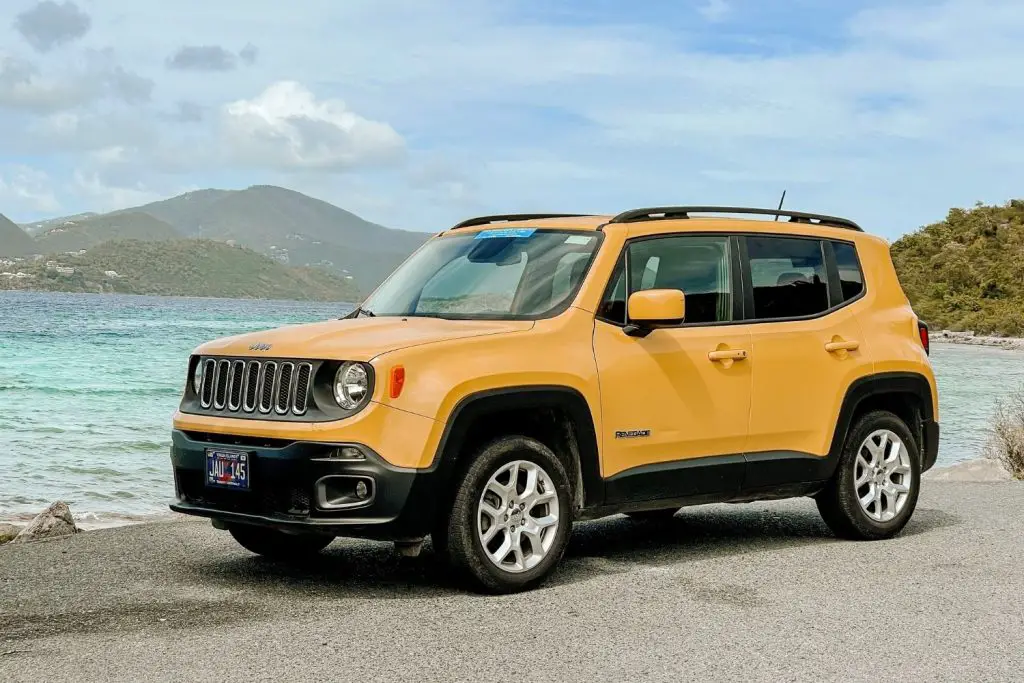We may get commissions for purchases made through links in this post. Thanks for the support! 👍
More and more people are drawn towards buying an SUV compared to other types of vehicles. These are excellent vehicles for traveling long distances and require less maintenance. Moreover, they are best for off-roading and have a lot of space for accommodating items.
These days, SUVs come with smaller engines and for definite reasons. Small engines provide more power and torque besides having a better fuel efficiency that results in low emissions. Apart from that small engines on SUVs reduces the overall vehicle weight and create more space.

- 1. Why do you find SUVs with smaller engines these days?
- 2. Better fuel efficiency with low emission
- 3. Improved engine design
- 4. Easy to maintain and reduce weight
- 5. Hybrid vehicles use electricity to make up for the smaller engine
- 6. Engines are getting smaller to meet government demands
- Frequently Asked Questions
- Conclusion
1. Why do you find SUVs with smaller engines these days?
Apart from the main reasons why car manufacturers are introducing smaller engines (not many V12s anymore) in their SUVs, there is another cause. There is no denying that the SUV industry is highly competitive and many brands struggle to maintain the same level of sales.
So, they have to decide on certain parameters to hit the market. In short, they have to adapt to new technology and implement the same on their vehicles to ensure success. Besides, they have to keep up the pace with their competitors to achieve sustainability in the long term.
Modern-day SUVs have specifications that result in the overall improvement of the vehicle. Following are some of the reasons why SUVs are equipped with smaller engines these days.
2. Better fuel efficiency with low emission
SUVs with small engines have better efficiency compared to large ones. This is one of the important criteria that consumers consider before buying an SUV. Because the engine is small, it will utilize a small amount of fuel. Also, it will lead to a small amount of ejected gas.
Fuel efficiency depends on the engine size and horsepower. Therefore, with the advancement in technology, car manufacturers downsized engine size to achieve more fuel-efficient vehicles. As such, some SUVs consume less fuel.
Moreover, better fuel efficiency has led to reduced emissions as well. However, there are strict regulations that prohibit the automotive industry to manufacture vehicles with low emissions. Small engine SUVs have lower emissions because of efficient fuel consumption.
3. Improved engine design
There is no denying that a well-designed engine provides stability and performance to the vehicle. SUVs with smaller engines work tediously for longer periods and consume less fuel. A good engine design helps produce maximum output while increasing the efficacy of the SUV.
The large engines that SUVs tend to have in the past are no longer in use and replaced by hybrid technology. As a result, SUV engines are smaller yet produce sheer power for the vehicle. The small engines in SUVs are favorable for auto enthusiasts and increase their affordability for these vehicles.
Besides, the hybrid technology improves the power output by turbocharging the engine. If you compare a turbocharged engine to a non-turbocharged one, you know that the former can generate more power. Smaller engines in SUVs have an impact on fuel consumption, torque, and horsepower.
The turbocharged engine increases overall efficiency and helps to acquire torque and horsepower. Besides, with advancements in technology, engines don’t have to be large enough to power an SUV. Even with a small capacity engine such as 1.2 liters, an SUV can have decent power.
- Top 6 Light-Duty Pickup Trucks with Diesel Engines (1500 Series & Mid-Size)
- Can straight pipes hurt your engine?
- Here are the most Reliable Pickup Truck Engines
4. Easy to maintain and reduce weight
Small engines on SUVs don’t attract costly maintenance for a prolonged period. And, when it comes to proper management, it doesn’t cost much. Besides, regular care and check-ups on your own don’t require hiring a mechanic either.
Car manufacturers put a lot of effort to deliver a powerful SUV with a smaller engine and great specifications. Through engine modification, they can reduce the vehicle’s weight. As such, it produces more space for accommodating additional items as well.
This weight reduction significantly adds more power to the engine. Strict regulations and customer needs urge car manufacturers to produce SUVs with small engines. You can have more space because of a reduced fuel tank. And, this is because of the small engine that has remarkably fuel-efficient.
5. Hybrid vehicles use electricity to make up for the smaller engine
Hybrid vehicles use electricity to supplement the power from their smaller engines. This results in hybrid vehicles being more fuel-efficient than traditional gasoline-powered vehicles.
Hybrid vehicles are also able to reduce emissions of harmful pollutants, making them a more environmentally friendly option.
While hybrid vehicles have many benefits, they can be more expensive to purchase and maintain than traditional gasoline-powered vehicles.
Despite this, hybrid vehicles are becoming increasingly popular as people look for ways to save money on fuel and reduce their environmental impact.

6. Engines are getting smaller to meet government demands
The government is now requiring engines to be more fuel-efficient, and the only way to do that is to make them smaller.
As a result, engines are getting smaller and smaller, and there’s no end in sight.
So the next time you’re stuck in traffic, remember that it’s not just the cars that are getting smaller; it’s the engines too.
Frequently Asked Questions
Should I buy a 4 cylinder SUV?
SUVs are all the rage these days. They’re big, they’re bold, and they can hold a LOT of cargo. But what about their fuel efficiency? After all, SUVs aren’t exactly known for being gentle on gas. That’s where 4-cylinder SUVs come in. These bad boys can have the same power and cargo capacity as their 6 and 8 cylinder counterparts, but with much better gas mileage. So if you’re looking to save some money at the pump, a 4-cylinder SUV is the way to go. Just don’t expect to win any drag races.
Conclusion
So, it is evident that there are many reasons why SUVs have smaller engines. While buying an SUV depends on personal preference, other technical aspects shouldn’t be ruled out either.
Today’s SUVs are all about a powerful engine, low emissions, and better fuel consumption. Moreover, manufacturers find it reasonable to build small yet powerful engines rather than building large engines.
![8 Toyota Cars, Trucks, and SUVs [Plus a Minivan] Made In America](https://amanandhisgear.com/wp-content/uploads/2020/04/2020-Toyota-Tundra.jpg)